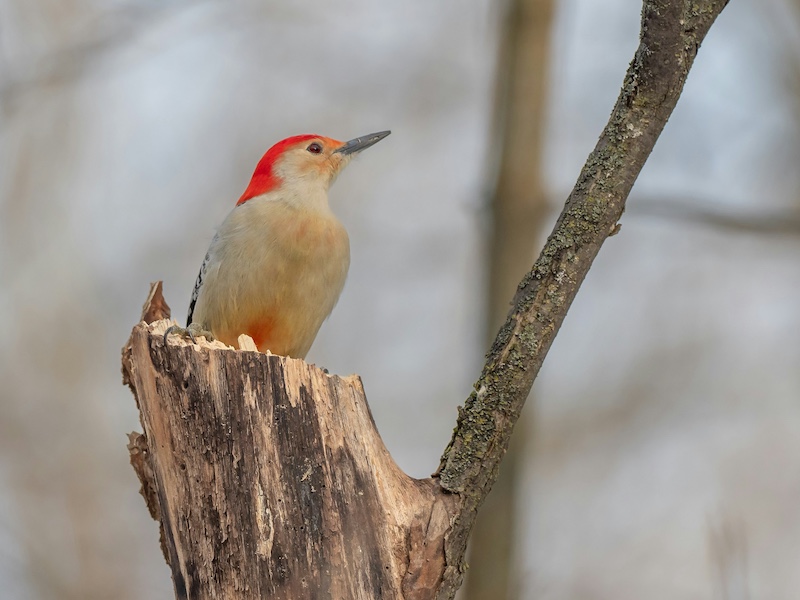The Circle of Your Influence
Practicing with your immediate surroundings—observing, questioning, appreciating—can help you realize your intimate connection to the whole process. The post The Circle of Your Influence appeared first on Tricycle: The Buddhist Review.

Practicing with your immediate surroundings—observing, questioning, appreciating—can help you realize your intimate connection to the whole process.
By Larry Ward May 15, 2025 Photo by Patrice Bouchard
Photo by Patrice BouchardExcerpted from “Sunyata at Heart: The Gateway to Nature’s Endless Miraculousness,” presented at Tricycle’s 2025 Buddhism & Ecology Summit.
I’m going to talk about what’s outside my door and in my backyard. I encourage you to practice with what is close to you, even if it’s just the plants and flowers in your house. Learn to practice with them. Learn to look at them deeply and see how they hold emptiness, the comings and goings of all life, of all phenomena, in themselves.
***
I’m here in Exeter, Rhode Island, in a little rental house. We are in a location that has two acres of a field behind it, probably close to 1,000 trees, a lot of birds, rabbits, chipmunks, wild turkeys, and lots and lots of squirrels. Every day, I watch how much life goes on in the field, how many species are sustained in coming and going, how life is sustained. I’ve been focusing on getting personal about this. We have quite a few red-headed woodpeckers here, where we are, in our field, so I’ve been spending time looking at them. I’ve decided to look a little more closely at what they do, how they fit into the symphony that is the sunyata of the forest they create. They excavate trees. They provide nesting opportunities for other species and other beings. They help in the decomposition and the renutrifying of elements they disperse—all of these functions that for most of us are invisible. The more I look out over the field, the more I recognize how much I don’t see. What I don’t see is still yielding, teeming with life, full of wonder and amazement.
You can begin to think that life is meant to sustain life.
I love the sound of the woodpeckers. They’re quite constant. As far as I can tell, they take five pecks each time, and then they rest. It’s something we probably need to learn how to do as people: Spend five energies on it, and then rest. Spend energy on it, and then rest, so you maintain your full capacity at all times.
It’s such a wonderful thing to bear witness every day. I know it’s easy to have the circle of your concern for our ecological dilemma weigh on your heart and mind. But what I’ve done and would encourage you to do as well is to focus on the circle of your influence, which begins with your own heart and mind. The more you can develop an intimacy—meaning a nondualistic relationship to the natural world that you are and that is around you—the more at ease you can be as an earthling; the more wise you can be as a son or daughter or being of the earth.
So look out of your back door, whether it’s a park or a garden or something else. Pick a place that you want to get intimate with, that you want to look at deeply and learn how to respect all the beings that are there. It would take years and years for me to crawl around on the ground to meet all the beings that are in the field behind me. And it would probably take another year to greet them all. But I think we have to be this way in order for the earth not to simply be objectified. We must start to realize our intimate connection to the whole process. The earth is not out there. It is here and now, in here and out there.
The more you can develop an intimacy—meaning a nondualistic relationship to the natural world that you are and that is around you—the more at ease you can be as an earthling.
It’s springtime, and I’ve noticed in the last week that insects are returning. It’s so easy to live in irritation as the insects return—or try to return—to our doorways, our screens, and our kitchens, and I decided, while we are protecting ourselves from being overwhelmed by insects, to make it part of my practice to recognize what insects provide us. There’s no reason to take an ant or a fly for granted. They sustain us in ways we hardly imagine. They pollinate plants, they decompose waste and organic material. They’re an important source of food, and, for me, they are inspiring. If you have ever seen a group of ants get it together and do something, that can be quite an inspiring image of what it means to be an effective collective. Thich Nhat Hanh used to use the example of ants quite often to demonstrate what it means to collaborate and cooperate together.
At the roots of our awareness that is nondual, we recognize that we are the earth. The earth is not a separate entity. It is a manifestation of causes and conditions of the cosmos and our own minds.
So figure out how and where you can or want to get more intimate with the particularities of nature where you are. If you don’t have a garden, maybe you should start one. If you don’t have a potted plant, maybe you should get one. Get as close as you can so you don’t forget that, like that plant, you are growing, you need watering, and you need nourishment. What the plant needs is not so far from what we need. What the tree needs is not so far from what we need. In our two acres back here, we have close to 1,000 trees, in my mind. If there are 1,000 trees above, you can hardly imagine the complex root structure below. I recently realized that I’m sitting on the roots of trees, and our house is sitting on the roots of trees. Then I started to realize I am sitting on the lives of others who came before me in the land, whether I know them or not, whether I can call their names or not. They are here in the land. We’re learning how to be with the earth, dust, comings and goings, wind, fire, and air. We are learning how to be human.
This excerpt has been edited for length and clarity.
![]()
Thank you for subscribing to Tricycle! As a nonprofit, we depend on readers like you to keep Buddhist teachings and practices widely available.

 BigThink
BigThink 






























